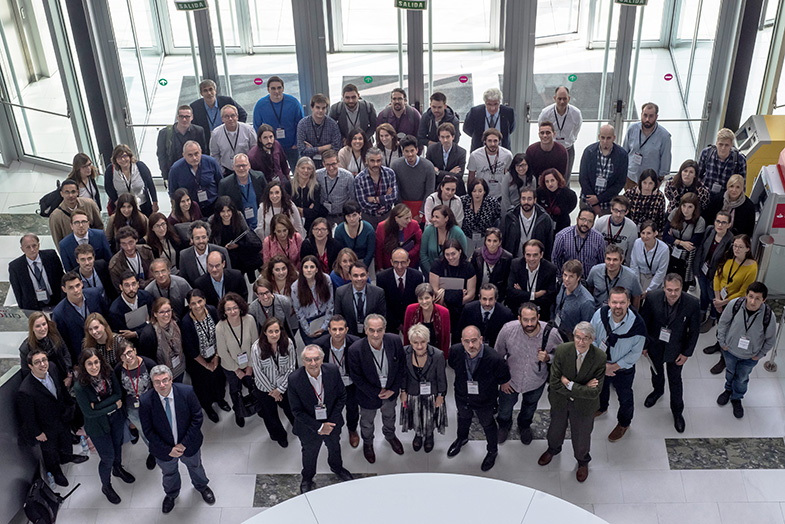The 2017 CNIC Conference on atrial fibrillation combined a global perspective from the genetic basis to the new advances in clinical treatment
The CNIC Conference entitled “Atrial Fibrillation: from Mechanisms to Population Science”, joined together 126 world experts in the field of atrial fibrillation in very different areas of expertise
On November 3rd and 4th, the VII edition of the CNIC Conferences, scientific meetings that are already a reference for cardiovascular researchers from all over the world, took place at the Carlos III National Center for Cardiovascular Research (CNIC). This time the meeting was dedicated to atrial fibrillation and was organized by CNIC researchers, David Filgueiras, José Jalife and Miguel Manzanares, and by the researcher at the Sorbonne University, in Paris, Stephane Hatem. The meeting entitled 'Atrial Fibrillation: from Mechanisms to Population Science', joined together 126 world experts in the field of atrial fibrillation in very different areas of expertise: genomics and epigenomics, pathogenesis, gene therapy, animal models and human disease.
The main objective of the CNIC Conference is to join together some of the leading experts in atrial fibrillation in Europe and the USA to present and discuss the latest developments in fundamental, translational, clinical and population sciences and technological advances in this field. On this occasion, the experts exchanged the latest data and knowledge on the advances in population genetics which have shown that there are genes closely related to the disease, which opens new perspectives in the knowledge of the molecular basis of atrial fibrillation, the most common heart rhythm disease in the world, which has a great impact on public health.
The researchers also concluded that the interactions of macro-molecular complexes of ion channels at the atrial level are also postulated as potentially effective targets in the prevention and treatment of atrial fibrillation. During the CNIC Conference some works were also presented in the clinical area that show that both surface and intracardiac mapping are providing added value to the conventional isolation of the pulmonary veins for a more effective treatment of atrial fibrillation in complex cases.
The interactions of macro-molecular complexes of ion channels at the atrial level are also postulated as potentially effective targets in the prevention and treatment of atrial fibrillation
It must not be forgotten that atrial fibrillation affects more than 30 million people worldwide and, in Spain, it is estimated that there are more than 600,000 people with this disease. In addition, it is estimated that around 25% of the world's population of over 40 years of age will suffer it in the course of their lives. However, despite more than 100 years of research, the mechanisms that initiate, maintain and perpetuate atrial fibrillation are not fully understood, which probably explains why the therapy has been disappointing to date. Therefore, the field of arrhythmias and cardiac stimulation, its treatment and improvement of the life expectancy of those who suffer it is one of the priorities of cardiological research.
The conference also counted with the support of the Interhospital Foundation for Cardiovascular Research, which awarded two prizes for the best oral communication and the best poster. The prizes, financed with 1,000 euros each, corresponded to:
- Best short speech: Raquel Rouco, from the Center for Arrhythmia Research (USA), and CNIC, for the presentation "Genomic expression during atrial fibrillation progression in a sheep model of persistent AF".
- Best poster. David Tinaquero, from the Department of Pharmacology of the Complutense University of Madrid, for the presentation of the paper entitled "A DLG1 polymorphism shortens the action potential duration and the QT interval".
The 2018 edition of the CNIC Conference entitled "Emerging Concepts in Cardiovascular Biology" will take place on November 16th and 17th and will be coordinated by Dr. Rui Benedito and Dr. José Luis de la Pompa, of the CNIC; Dr. José María Pérez Tomares, of the Biomedical Research Institute of Málaga, and Dr. Didier Stainier, of the Max Planck Institute (Germany).











